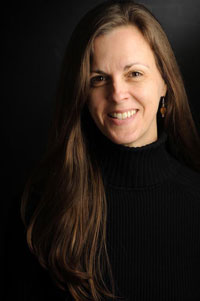Etty Hillesum recognized both her capacity for hatred and the need to let it go. On a February day in 1942, she notes the martyrdom of a young man; she comments on how he had played the mandolin, and had a wife and child. She runs into a friend and talks with him about the martyred man. Her friend asks, “What is it in human beings that makes them want to destroy others?” Etty’s response reminds him that they, too—the two of them—are among the human beings of whom he speaks. “I see no other solution,” she tells him, “I really see no other solution than to turn inwards and to root out all the rottenness there.”
Some months later, about a year before her death, Etty recorded in her diary part of a conversation with a friend:
“It is the only thing we can do, Klaas, I see no alternative, each of us must turn inwards and destroy in himself all that he thinks he ought to destroy in others. And remember that every atom of hate we add to this world makes it still more inhospitable.”
And you Klaas, dogged old class fighter that you have always been, dismayed and astonished at the same time, say: “But that—that is nothing but Christianity!”
And I, amused by your confusion, retort quite coolly, “Yes, Christianity, and why ever not?”
It is easy, sometimes, to criticize or condemn the hatred that others inflict upon the world, while at the same time dismissing our own capacity for it. If we haven’t touched our own hatred, haven’t felt it inside us, it’s likely because we have insulated ourselves from being in situations that would kindle it.
Like anger, which we explored here a few weeks ago, hatred is a complex and vivid emotion that comes as a messenger. Hatred has something to tell us, to teach us, about the shadowy parts of our souls and our connections with the world. It presents us with a difficult point of discernment. There are things, situations, people in this world that we are called to stand against and to speak in opposition to. God means for us to name evil where we see it and to work against it. How do we do this while not falling into the depths of hatred, in which lies the impulse to destroy and diminish?
In these days, Etty invites and challenges me to look for where there may be hatred in my life, and how my hatred carries an invitation to do the work I need to do in my own soul. It is this work that frees us and enables us to name true evil where it exists, and to confront it with clarity and purpose.
Questions for reflection
Where do you sense the presence of hatred in your own life? What message or invitation may it hold for you? How do you bring your hatred into your prayers, so that, with God, you may listen to it and let it tell you what it needs for you to know about yourself and what you are called to do in this world?
Quotations of Etty’s words are from Etty: The Diaries and Letters of Etty Hillesum 1941-43 and can also be found in an abridged version of her work, An Interrupted Life: The Diaries of Etty Hillesum 1941-43.

I love Etty Hillesum and see her as a saint, a guide, a light.
Your bringing work on hatred today is timely. Struggling with unwelcome feelings and not having the courage to call them by their name…
Sobering and liberating. Thank you.
This is so true! I’m working on it! You touched me especially with the part about isolating/avoiding the situations. That is so much more comfortable than working on what’s inside me.
Barbara